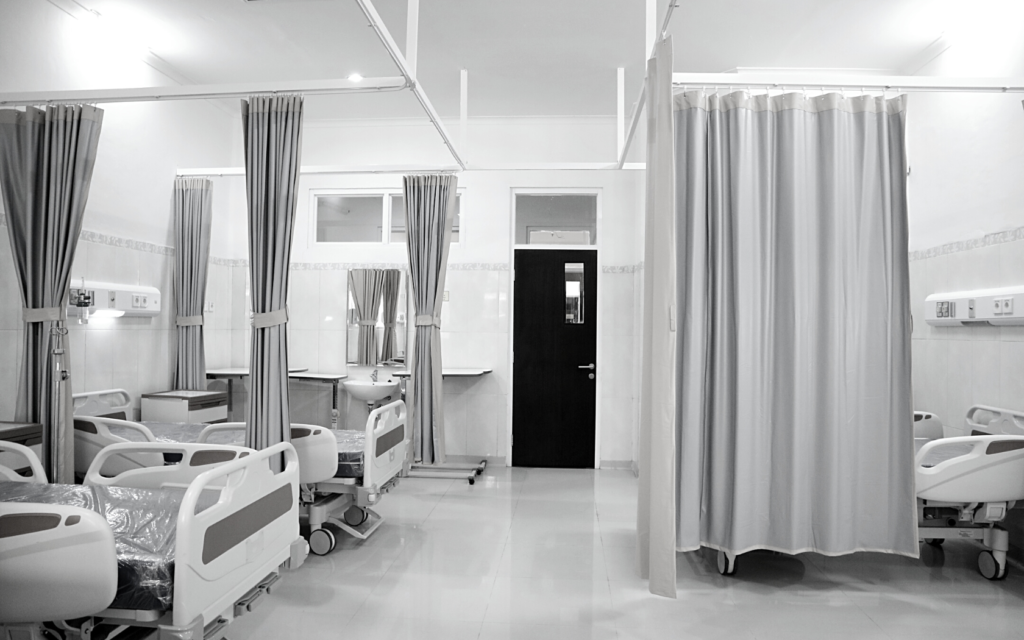Have you ever had an extended stay at the hospital? After a few days, you probably wanted to jump out of that uncomfortable cot, rip off that flimsy hospital gown, and run out the door. Yes, most patients love an early discharge from the hospital. It’s great to hear you’re headed home if you’re feeling better. But not if it puts your health at risk. And that brings us to the story of Joshua Brumm, and his negligent discharge from the hospital..
In 2021, a 24-year-old patient named Joshua Brumm injured his kidney after a snowboarding accident. He had an operation to have the kidney removed. Just days later, the hospital decided to let him go home early. The result? He passed away just hours after walking out the hospital doors. His mother claims the negligent discharge from the hospital led to her son’s death.
Lynn Brumm filed a $10 million dollar lawsuit against Denver Health Medical Center. “A 24-year-old should not go into the hospital because of a kidney injury and die,” she told Fox 31 News.
Have you or a loved one suffered grave injuries after an early discharge from a hospital? Our experienced medical malpractice lawyers can help. Contact us here to schedule a consultation at no cost to you.

“Looks Like He Sprung A Leak”
Joshua Brumm’s snowboarding accident caused internal bleeding. Doctors assumed that the bleeding had stopped once they removed his kidney. They didn’t perform any tests to make sure that it had. Instead, they gave him an early discharge just a few days after the surgery. How long was his hospital stay? Just 12 days.
His mother recalls seeing her son’s shirt soaked with blood when she picked him up on discharge day. A nurse spotted the blood too. Her reaction? She treated it as a joke, commenting, “‘Oh, looks like he sprung a leak.”
How could hospital staff be so negligent as to let a patient walk out their doors still bleeding? Brumm’s mother was worried sick about her son’s condition. But there was nothing she could do. The hospital had decided he was ready to leave.
But Lynn Brumm was right to be worried. Seven hours later, Joshua became dizzy. Then he went blind. She rushed him to the emergency room of a different hospital. Shortly after he arrived, a doctor pronounced him dead.
The second hospital notified Denver Health Medical Center, the hospital that had operated on Brumm, about his passing. Of course, DHMC denied any wrongdoing. No surprise there! That’s often the case with negligent discharge from a hospital.
Even so, it’s possible to sue a hospital for medical malpractice when an early discharge leads to harm. So Lynn Brumm and her family began to gather evidence to fight for justice for Joshua in court. In the end, the hospital settled for $387,000. That was the maximum allowed under Colorado’s Government Immunity Act at the time of Brumm’s death.
Examples Of Negligent Discharge From Hospitals
Joshua Brumm’s early hospital release after a surgery was devastating. But it isn’t the most common type of negligent discharge.
Most early discharges from hospital lawsuits have involved newborns. For example, a newborn is sent home before the 48 hour rule set by the American Academy of Pediatrics (AAP) and the American College of Obstetricians and Gynecologists. The baby then falls ill at home, or passes away. Had the child stayed in the hospital, they would likely have remained in good health.
Normal, healthy babies can sometimes go home early without an issue. But premature or low birthweight babies are at a greater risk.
Here are some other examples of how an early discharge from hospital can lead to a lawsuit:
- A hospital sends a patient home without testing for infections after an operation. The patient has to be readmitted. Or, they pass away from infection while at home.
- A patient receives a pacemaker. The hospital discharges the patient without thorough testing of the device. The pacemaker fails, leading to the patient’s death.
- Sometimes patients receive an early discharge from the emergency room. Most often, this happens because doctors misdiagnose them. They fail to catch the signs of a stroke, infection, or heart attack, and patients pass away at home.
Early Discharge From Hospital: When Is It Malpractice?
Want to emerge victorious from your negligent hospital discharge lawsuit? There are two important things you’ll have to prove as a plaintiff:
- The doctor or hospital was negligent while caring for you (or the patient).
- The negligence caused you (or your loved one) harm.
Not every early discharge from a hospital is negligent. Sometimes, a patient would have passed away or fallen ill regardless of whether they stayed in the hospital or not. Plaintiffs have to show that the early discharge contributed to or caused their injury.
Sadly, negligent discharge from hospital lawsuits are most successful when patients pass away after their release. Readmission can also be a telltale sign of negligence.
On the other hand, readmission to the hospital doesn’t always mean that doctors were negligent. Some patients have to return to a hospital even though they were discharged at a reasonable time.
While examining a case, lawyers try to determine whether it was reasonable for the hospital to discharge a patient based on the facts available. They may seek medical expert witness testimony to prove that doctors deviated from the standard of care. The goal is to show that a provider didn’t do what was reasonable for any doctor to do in that situation.
In many negligent discharge cases, our lawyers have pinpointed certain areas where doctors make mistakes. For example:
- They fail to perform tests to make sure the patient is healthy before discharge.
- They don’t diagnose a medical condition correctly, or miss it completely.
- They fail to get informed consent before discharging, and the patient suffers harm as a result.
- The hospital doesn’t allow enough time for observation after an operation or a birth.
- Staff doesn’t schedule follow up visits after a patient goes home.
- The hospital didn’t monitor the patient’s vital signs for the standard amount of time before sending them home.
- They discharge a patient without considering the living conditions the patient is being discharged to. If the patient has inadequate resources or support, this can result in harm to the patient.

Getting Compensation For Negligent Hospital Discharge
So your hospital rushed you (or your loved one) out the door too early. You ended up right back at their doorstep days (or hours) later. The hospital’s negligence caused permanent harm to your health or finances. Can you sue for damages?
Yes, you can get compensation for negligent discharge from the hospital. But you have to provide legal proof that the early release harmed you. But “harm” doesn’t just mean bodily injury. In a lawsuit, the following circumstances also fit the definition of harm:
- Loss of wages. (Inability to work)
- Medical bills
- Pain and suffering
- Death
- Loss of quality of life
How much compensation will you receive? That depends on many things. You might settle out of court for a lesser amount. If your case goes to court, you may win the amount you’re seeking, or less, or nothing at all. In some states, there is a cap (maximum amount) on damages that hospitals must pay.
Lawsuits involving a negligent discharge from hospitals are complex. Your best chance for a positive outcome is to hire a medical malpractice lawyer. The attorneys at Hampton & King have the experience to handle tough negligent discharge cases. We’re the ally you need to take on negligent medical providers and go after the compensation you deserve. Contact us to discuss your situation and the litigation process today.




